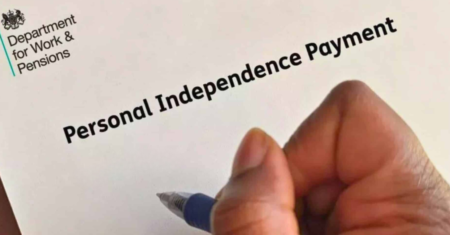
Understanding Credit Bureaus: A Comprehensive Guide
When navigating the world of personal finance, understanding credit bureaus is essential. Credit bureaus play a pivotal role in shaping your financial future by collecting and maintaining credit information. This article delves into the workings of credit bureaus, their importance, and how they affect your credit score and financial opportunities.
What is a Credit Bureau?
A credit bureau, also known as a credit reporting agency, is an organization that collects data about individuals’ credit histories and compiles it into credit reports. These reports are used by lenders, employers, landlords, and others to assess an individual’s creditworthiness.
Some of the most well-known credit bureaus globally include:
- Experian (official site)
- Equifax (official site)
- TransUnion (official site)
In certain regions, other local credit bureaus operate, often complementing the global players.

How Credit Bureaus Work
Credit bureaus gather information from various sources, including:
- Banks and Lenders: Reporting loan details, repayment history, and credit card usage.
- Utility Companies: Sharing records of bill payments.
- Public Records: Court judgments, bankruptcies, and tax liens are included in reports.
This data is aggregated into a credit report, which typically includes:
- Personal identification details (name, address, social security number, etc.).
- Credit accounts and repayment history.
- Credit inquiries (hard and soft inquiries).
- Public records related to financial matters.
Why Credit Bureaus are Important
Credit bureaus are critical for maintaining a transparent financial system. Their functions include:
- Credit Risk Assessment: They provide lenders with insights into a borrower’s reliability.
- Fraud Prevention: Monitoring and reporting irregularities to reduce identity theft.
- Access to Financial Opportunities: A good credit report can open doors to loans, mortgages, and even better job prospects.
What is a Credit Score?
A credit score is a numerical representation of your creditworthiness, derived from the information in your credit report. It helps lenders determine the likelihood of timely repayments. Common scoring models include:
- FICO Score (more about FICO)
- VantageScore (learn about VantageScore)
How to Check Your Credit Report
Regularly checking your credit report is essential to ensure accuracy and detect potential fraud. Many countries mandate that individuals have free access to their credit reports annually. In the U.S., for example, you can access your reports from all three major bureaus via AnnualCreditReport.com.
Disputing Errors on Your Credit Report
Mistakes in credit reports are not uncommon, but they can significantly impact your credit score. To dispute errors:
- Obtain your credit report and identify discrepancies.
- Contact the credit bureau that issued the report.
- Provide documentation to support your claim.
- Follow up to ensure corrections are made.
Each credit bureau provides a formal process for disputes:
- Experian Dispute Center (submit a dispute)
- Equifax Dispute Center (start here)
- TransUnion Dispute Center (learn more)

Tips to Improve Your Credit Report and Score
Building and maintaining a good credit score requires consistent effort. Here are some actionable tips:
1. Pay Bills on Time
Late payments negatively impact your score. Set up automatic payments or reminders to ensure timely payments.
2. Keep Credit Utilization Low
Credit utilization is the ratio of credit used to the total credit limit. Aim to keep it below 30%.
3. Avoid Frequent Hard Inquiries
Hard inquiries occur when lenders check your credit report. Multiple hard inquiries in a short time can lower your score.
4. Maintain Long-Term Accounts
The length of your credit history influences your score. Keep older accounts open if possible.
5. Check for and Dispute Errors
Errors in your credit report can drag down your score. Review your report annually and address discrepancies promptly.
Common Myths About Credit Bureaus
Myth 1: Credit Bureaus Decide Whether You Get Approved
Fact: Credit bureaus do not make lending decisions. They only provide information; lenders use this to assess applications.
Myth 2: Checking Your Credit Report Hurts Your Score
Fact: Viewing your own credit report is considered a soft inquiry and does not impact your score.
Myth 3: All Credit Bureaus Have the Same Information
Fact: Not all lenders report to every bureau, so credit reports may differ.
FAQs About Credit Bureaus
What Happens If I Don’t Have a Credit History?
If you have no credit history, lenders may find it challenging to assess your reliability. Consider tools like secured credit cards or credit-builder loans to establish credit.
How Long Does Negative Information Stay on My Report?
Negative information typically remains on your report for seven years, though bankruptcies can stay up to 10 years.
Can I Have Different Credit Scores from Different Bureaus?
Yes. Since not all creditors report to every bureau and different scoring models exist, scores can vary.
Conclusion
Credit bureaus are vital in maintaining the integrity of the financial ecosystem. Understanding how they work and actively managing your credit report can lead to better financial opportunities. Whether you are looking to secure a loan, rent an apartment, or simply maintain good financial health, staying informed about credit bureaus and credit reports is essential.
For additional resources, visit the official websites of Experian, Equifax, and TransUnion, or explore government resources like Consumer Financial Protection Bureau.
By taking control of your credit today, you pave the way for a more secure and prosperous financial future.
About the Author






0 Comments